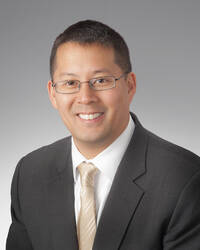
22 Oct Pitt Scientists Repurpose Cancer Drugs to Treat Pulmonary Hypertension
MedicalResearch.com Interview with:

Dr. Chan – UPMC image
Stephen Chan, M.D., Ph.D.
Professor of Medicine
Director of the Vascular Medicine Institute
at Pitt and UPMC
MedicalResearch.com: What is the background for this study?
Response: Pulmonary hypertension (PH) is a type of high blood pressure that occurs in the vessels that transport blood from the heart to the lungs. As the disease progresses and the heart must strain harder against these high pressures, it can lead to heart failure, multi-organ dysfunction and death. PH affects people of all ages but hits young women more often than men.
Pulmonary hypertension is an example of a rare disease where there is an unmet need for new treatments, given its devastating consequences. Repurposing drugs that are already in use for other purposes can dramatically cut down the time and cost of developing treatments for rare diseases like PH. But a pipeline to predict and test for drugs in this way for PH and other rare diseases has not been described.
MedicalResearch.com: What are the main findings?
Response: There is increasing appreciation that both cancer and pulmonary hypertension rely on similar molecular pathways to progress. So, by combining computational predictions made from existing datasets in cancer with experimental approaches to validate those predictions, we developed a pipeline to rapidly identify which cancer drugs are effective for Pulmonary hypertension. We validated those predictions for two highly ranked compounds, I-BET762 and BRD2889, and ultimately showed that these drugs can reverse PH in animal models of this disease.
MedicalResearch.com: What should readers take away from your report?
Response: First, we successfully identified cancer drugs that can be repurposed for effective treatment of Pulmonary hypertension; we now plan to move these compounds into clinical trials.
Second, with this algorithm in hand, we may be able to repurpose existing cancer drugs for the treatment of an entire cadre of rare and emerging diseases, far beyond PH.
MedicalResearch.com: What recommendations do you have for future research as a result of this work?
Response: These findings were made possible by a deep collaboration between a computer scientist (Seungchan Kim, PhD, Prairie View A&M University) and a physician-scientist who treats patients with PH (Stephen Y. Chan, MD, PhD, UPMC). In the future, such merging of expertise across computational, experimental, and clinical disciplines will be crucial to developing even more advanced pipelines relevant to clinical practice.
Any disclosures?
This research was supported by National Institutes of Health (R01 HL124021, HL 122596, HL 138437, UH2/UH3 TR002073, R01 HL148712, NCI U01CA217848 and NCI U01 CA168397), American Heart Association (18EIA33900027, 15SDG24910003 and 18IPA34170257), American Lung Association (RG-515656), University of Pittsburgh Center for Precision and Translational Pharmacology, University of Pittsburgh CTSI Biomedical Modeling Pilot Award, Gilead RSP in PAH grant, Texas A&M System Chancellor’s Research Initiative for the Center for Computational Systems and Biology at the Prairie View A&M University. Dr. Chan hold patent and patent applications in technologies to treat pulmonary hypertension.
Citation:
[wysija_form id=”3″]
[last-modified]
The information on MedicalResearch.com is provided for educational purposes only, and is in no way intended to diagnose, cure, or treat any medical or other condition. Always seek the advice of your physician or other qualified health and ask your doctor any questions you may have regarding a medical condition. In addition to all other limitations and disclaimers in this agreement, service provider and its third party providers disclaim any liability or loss in connection with the content provided on this website.
Last Updated on October 22, 2021 by Marie Benz MD FAAD
